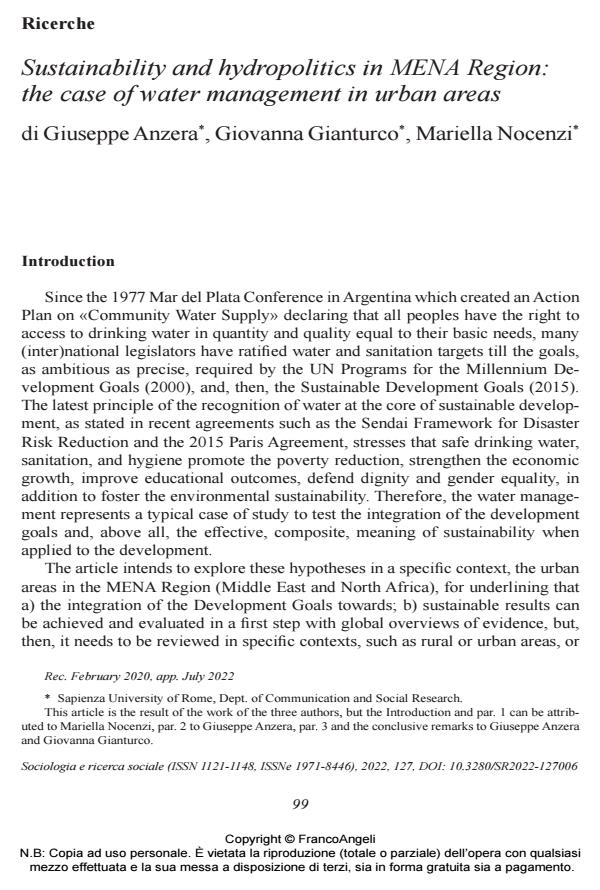Sustainability and hydropolitics in MENA Region: the case of water management in urban areas
Journal title SOCIOLOGIA E RICERCA SOCIALE
Author/s Giuseppe Anzera, Giovanna Gianturco, Mariella Nocenzi
Publishing Year 2022 Issue 2022/127
Language English Pages 20 P. 99-118 File size 210 KB
DOI 10.3280/SR2022-127006
DOI is like a bar code for intellectual property: to have more infomation
click here
Below, you can see the article first page
If you want to buy this article in PDF format, you can do it, following the instructions to buy download credits

FrancoAngeli is member of Publishers International Linking Association, Inc (PILA), a not-for-profit association which run the CrossRef service enabling links to and from online scholarly content.
Water is a vital asset used in public and private activities, both with domestic and productive targets. As freshwater is unevenly and irregularly scattered, some regions of the world acutely suffer from water scarcity. Limited access to safe drinking water and lack of adequate sanitation facilities in most devel- oping countries, as the rapid urbanization, have caused serious water scarcity and water pollution problems. Then, the global warming caused by burning of fossil fuels has negative impacts on the hydrological cycle and consequently unfavorable changes in water quality. In the Mediterranean basin, some regions, as the Middle East and North Africa (MENA), are encountering sever social, economic and environmental issues related to water management. As the UN Agenda 2030 Sustainable Development Goal 6 points out it’s irreversible to ensure availability and sustainable management of water and sanitation for all. Finally, it is possible to make the growing urban areas more sustainable (Goal 11), assuming water not more as a losing item for the MENA Region development, but as a strategic tool for facing persistent imbalances and for riding the overwhelming changes.
Giuseppe Anzera, Giovanna Gianturco, Mariella Nocenzi, Sustainability and hydropolitics in MENA Region: the case of water management in urban areas in "SOCIOLOGIA E RICERCA SOCIALE " 127/2022, pp 99-118, DOI: 10.3280/SR2022-127006